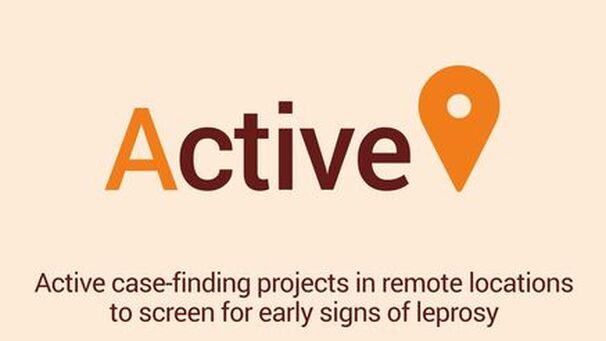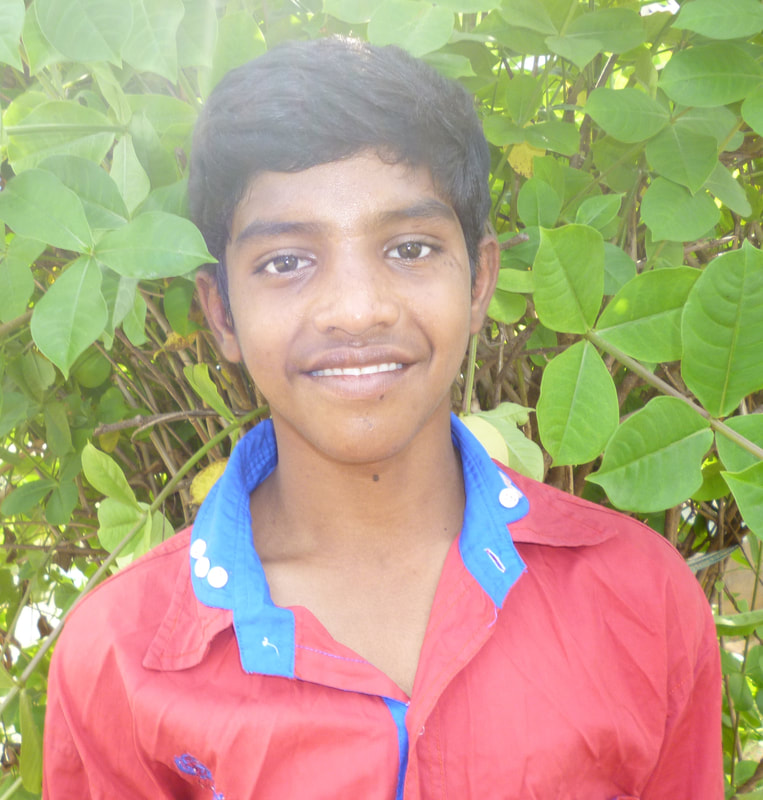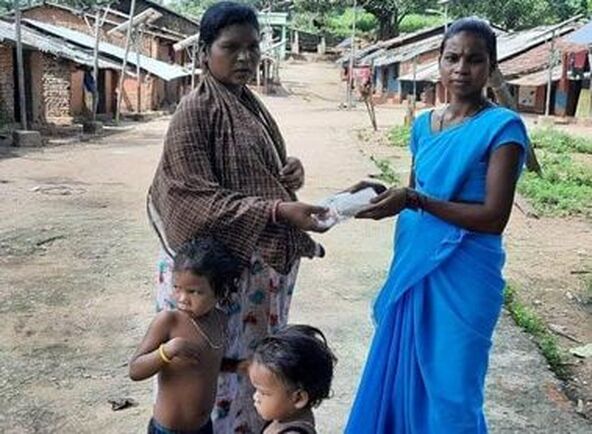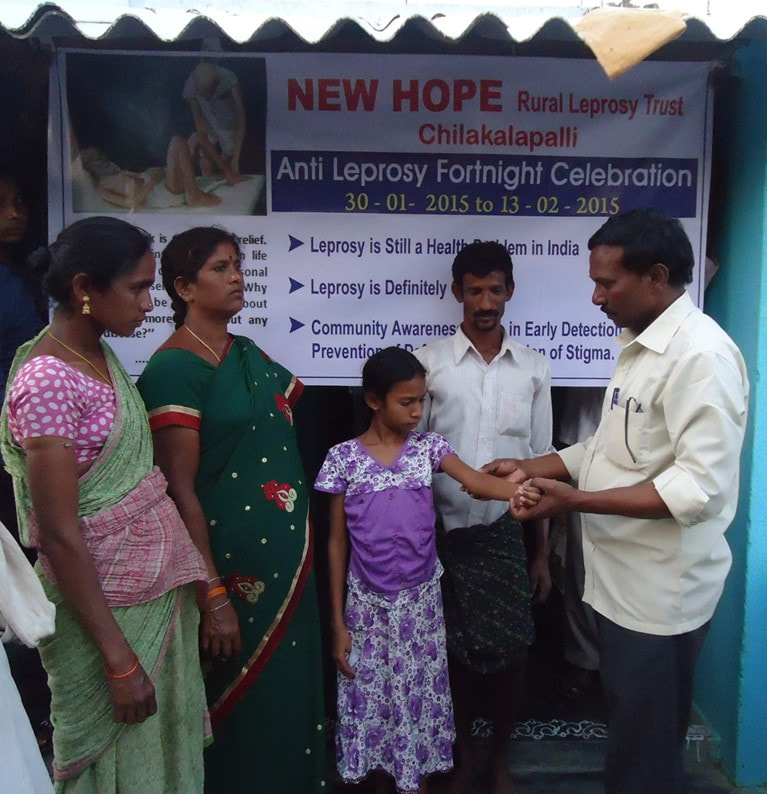SFLG’s operating strategy is putting an emphasis on Active Case-Finding; early detection followed by treatment with Multidrug-Therapy reflecting new global approaches in the ongoing fight against leprosy.
John's story
|
A boy named John became a beneficiary of New Hope in 2012 at the age of nine. He lived with his HIV positive mother and grandmother, coming under the care of his grandmother when his mother passed away.
When John showed his grandmother an unusual patch of skin on his arm, she took him to see a doctor who misdiagnosed him and prescribed the wrong medicine. But one day, John came across a mobile clinic offering a ‘Free Skin Check-up’. A paramedic there diagnosed leprosy and brought MDT to John's home. John’s grandmother came from a generation that had been taught that leprosy was a curse, and she was greatly fearful of his diagnosis. But John was not, and believed the paramedic when he said that he could be cured. John is now cured of the disease and feels positive about his future. He has undertaken a bee-keeping course, and now looks after thirty beehives along with two other people. |
John says: “I knew that the medicine I was given by the doctor at New Hope was serious to take correctly. In my first major check-up I saw a boy a bit older. Both hands had clawed fingers and he was there to get ready for surgery. Halfway through the year’s treatment a paramedic said “You are Christian!” I explained we were 3rd generation Christians. He then showed me the banner which I had not understood. ‘Supported by St. Francis Leprosy Guild’! After this I kept this organisation in prayer – I realised how fortunate I was to have early treatment.”
Early diagnosis, such as in John's case, is critical. The earlier the treatment begins, the greater the chance that it will be effective and prevent the patient from suffering deformities and the long-term effects of leprosy.
Checking the patient's family friends, social contacts and neighbours for leprosy is also critical in preventing the spread of the disease.
Checking the patient's family friends, social contacts and neighbours for leprosy is also critical in preventing the spread of the disease.
Contact tracing
Contact tracing is key in preventing the spread of leprosy because the disease can be transmitted to family members, friends and neighbours by an infected person coughing or sneezing.
In early 2015, New Hope began a survey of a particular area of a town, using a ‘skin awareness programme’. (They didn’t want to refer to it as ‘a leprosy programme’, as that risked discouraging people from coming forward.)
Several years earlier, in a suburb of this town, New Hope had cured three women of leprosy and had traced all but one of their contacts.
During the 2015 survey in that same area, the paramedics travelled street to street, giving skin patch check-ups for leprosy. A girl came to be checked, with her mother and aunt. She had been taking various herbal medicines for skin issues which had not worked. The girl was found to have borderline leprosy and started her course of MDT.
The New Hope paramedic brought the MDT to the girl’s home every month. One day he arrived to find that she wasn’t at home. He was told that she was visiting a nearby village. Fortunately, he managed to find the ‘missing’ contact from the original three women, a cousin of the girl’s mother.
The girl in this story, who was then 12 years old, was going to leave school because of poverty. But a New Hope social worker secured a place at a self- help group for her mother, and the girl received a scholarship through this initiative. She was enrolled in a skills training programme with a well-known eye care centre in a nearby city. So not only did New Hope treat her for leprosy, they also broke the cycle of poverty and given her a much brighter future.
Contact tracing is key in preventing the spread of leprosy because the disease can be transmitted to family members, friends and neighbours by an infected person coughing or sneezing.
In early 2015, New Hope began a survey of a particular area of a town, using a ‘skin awareness programme’. (They didn’t want to refer to it as ‘a leprosy programme’, as that risked discouraging people from coming forward.)
Several years earlier, in a suburb of this town, New Hope had cured three women of leprosy and had traced all but one of their contacts.
During the 2015 survey in that same area, the paramedics travelled street to street, giving skin patch check-ups for leprosy. A girl came to be checked, with her mother and aunt. She had been taking various herbal medicines for skin issues which had not worked. The girl was found to have borderline leprosy and started her course of MDT.
The New Hope paramedic brought the MDT to the girl’s home every month. One day he arrived to find that she wasn’t at home. He was told that she was visiting a nearby village. Fortunately, he managed to find the ‘missing’ contact from the original three women, a cousin of the girl’s mother.
The girl in this story, who was then 12 years old, was going to leave school because of poverty. But a New Hope social worker secured a place at a self- help group for her mother, and the girl received a scholarship through this initiative. She was enrolled in a skills training programme with a well-known eye care centre in a nearby city. So not only did New Hope treat her for leprosy, they also broke the cycle of poverty and given her a much brighter future.







